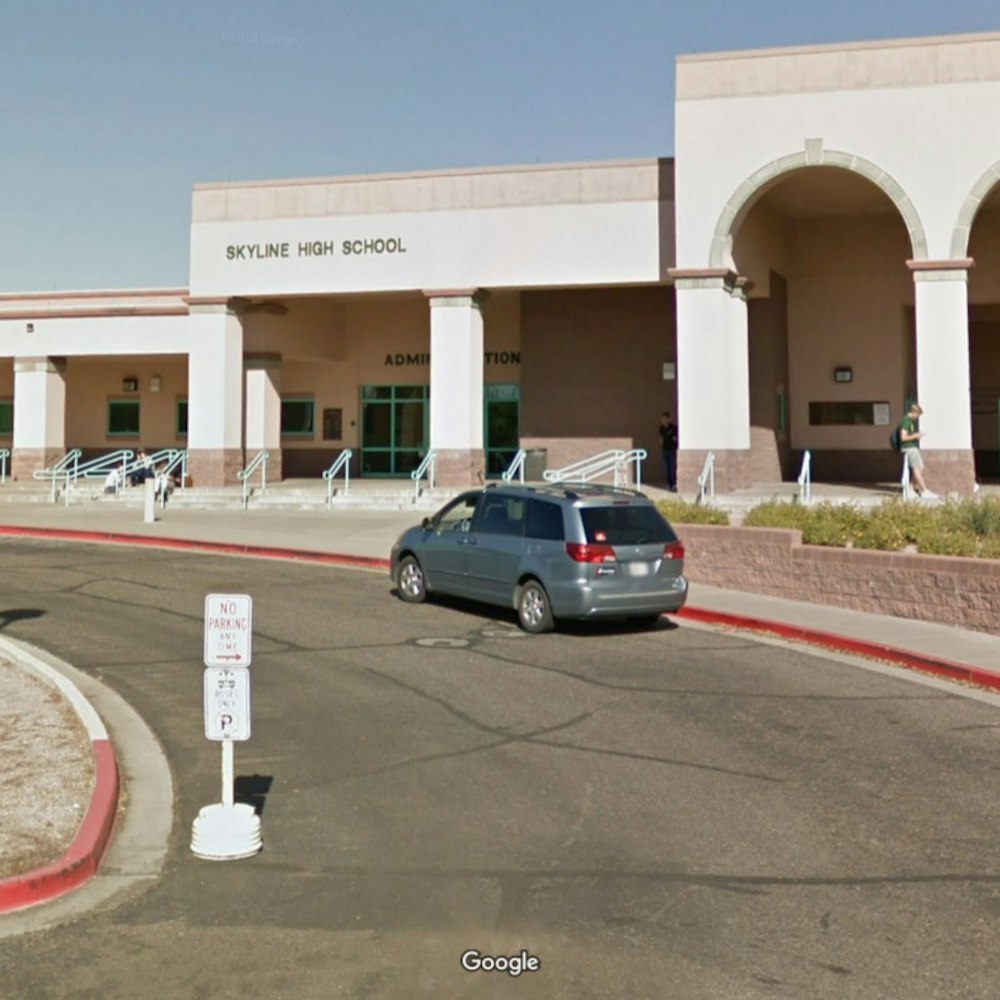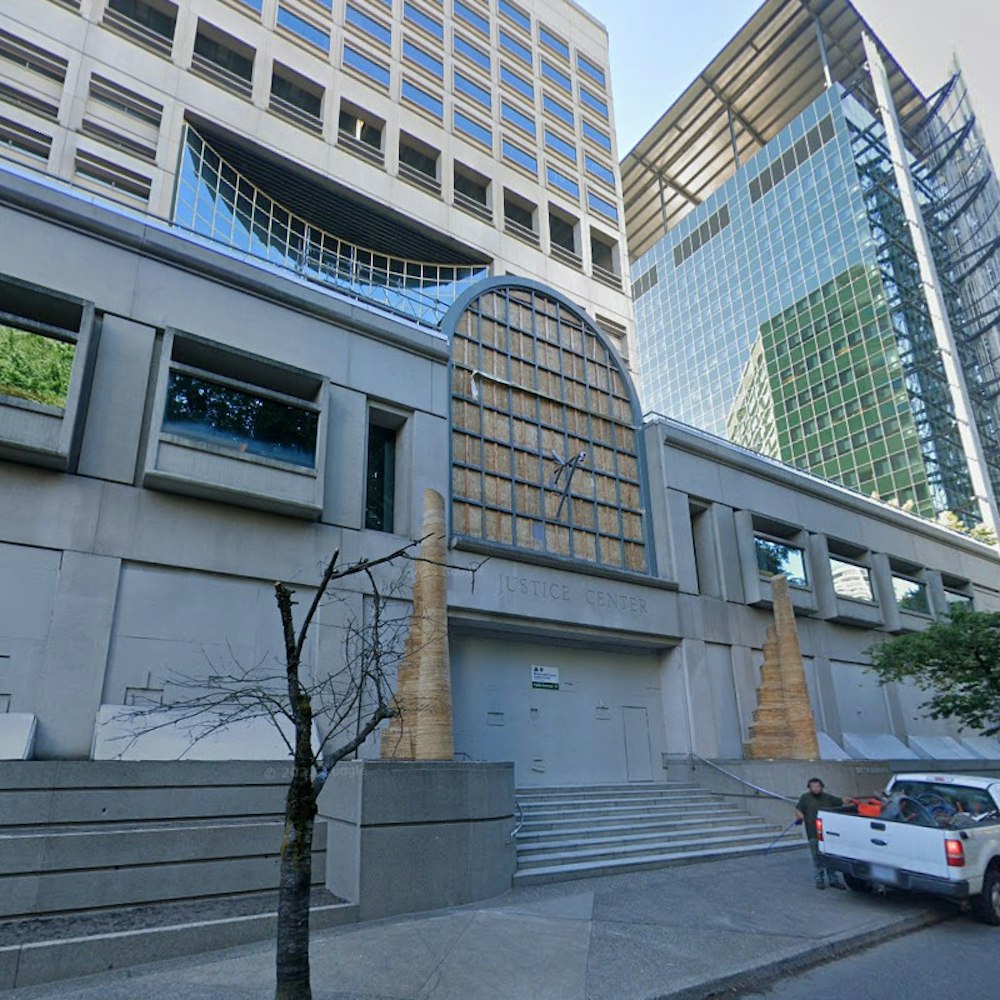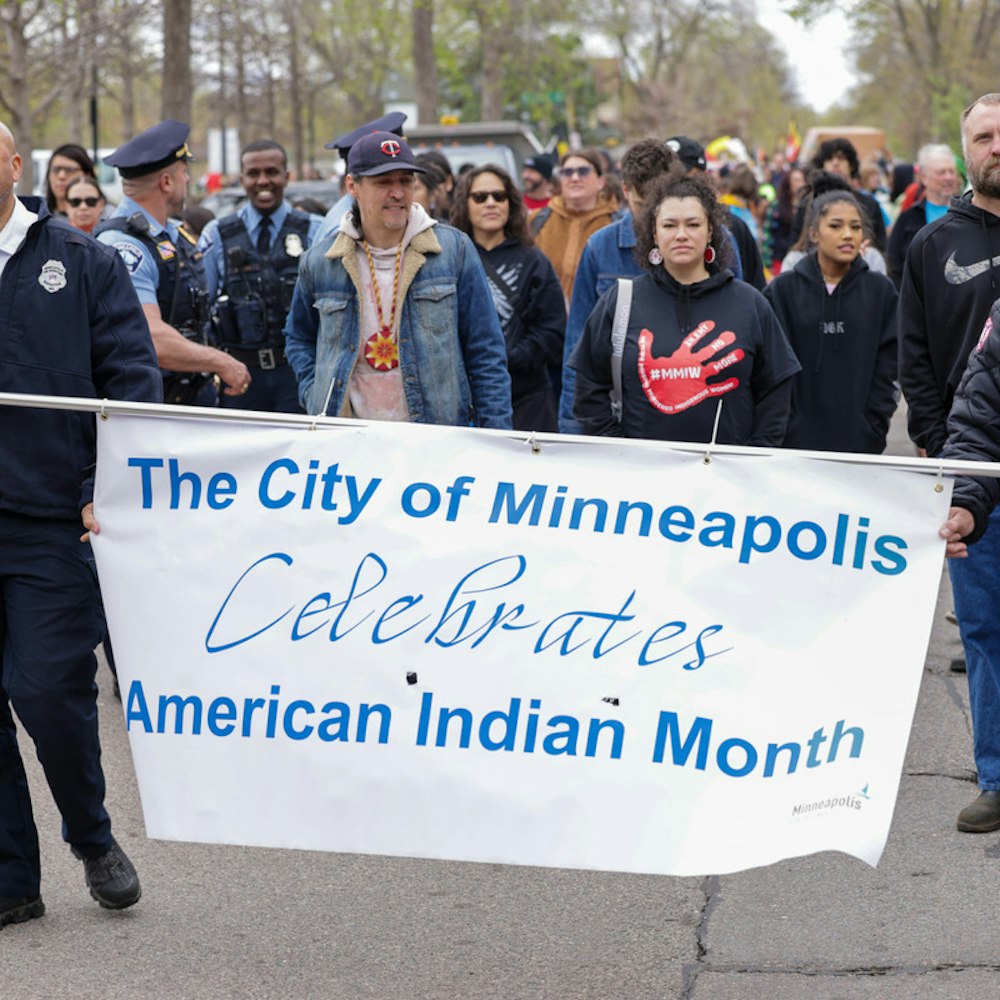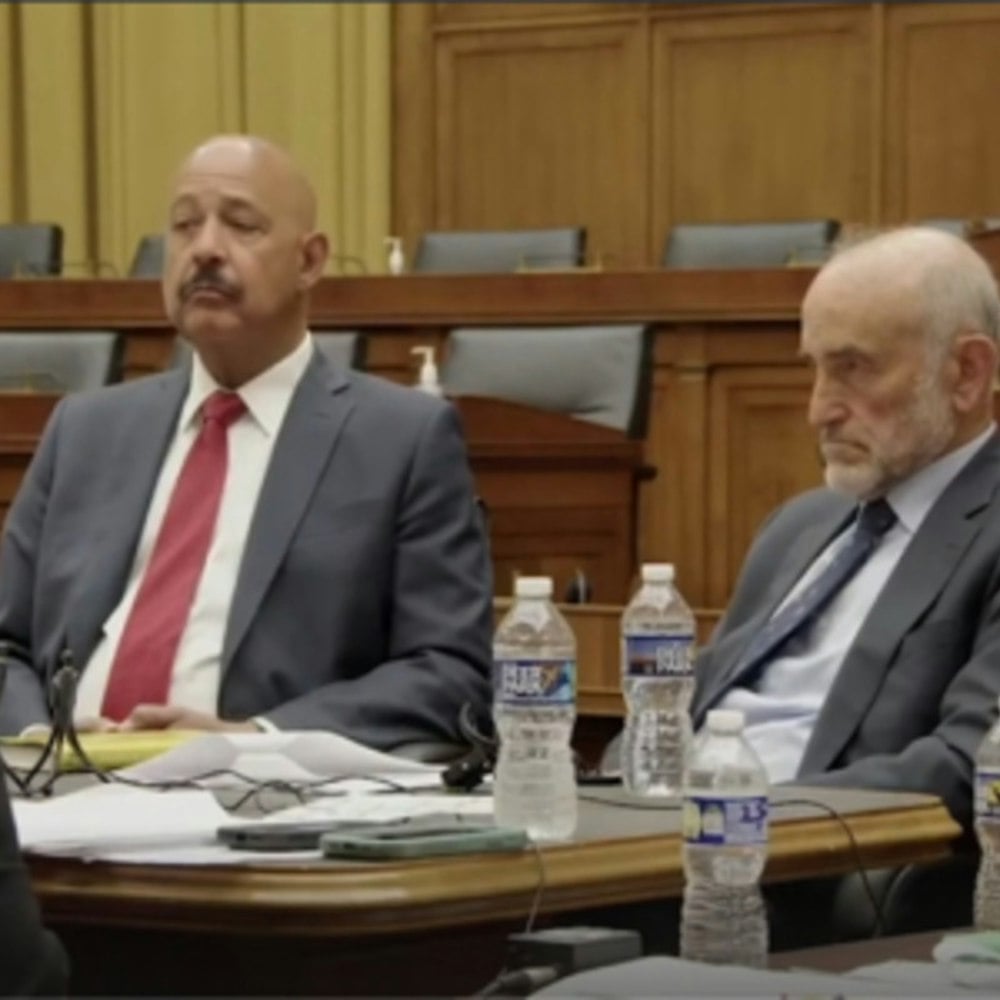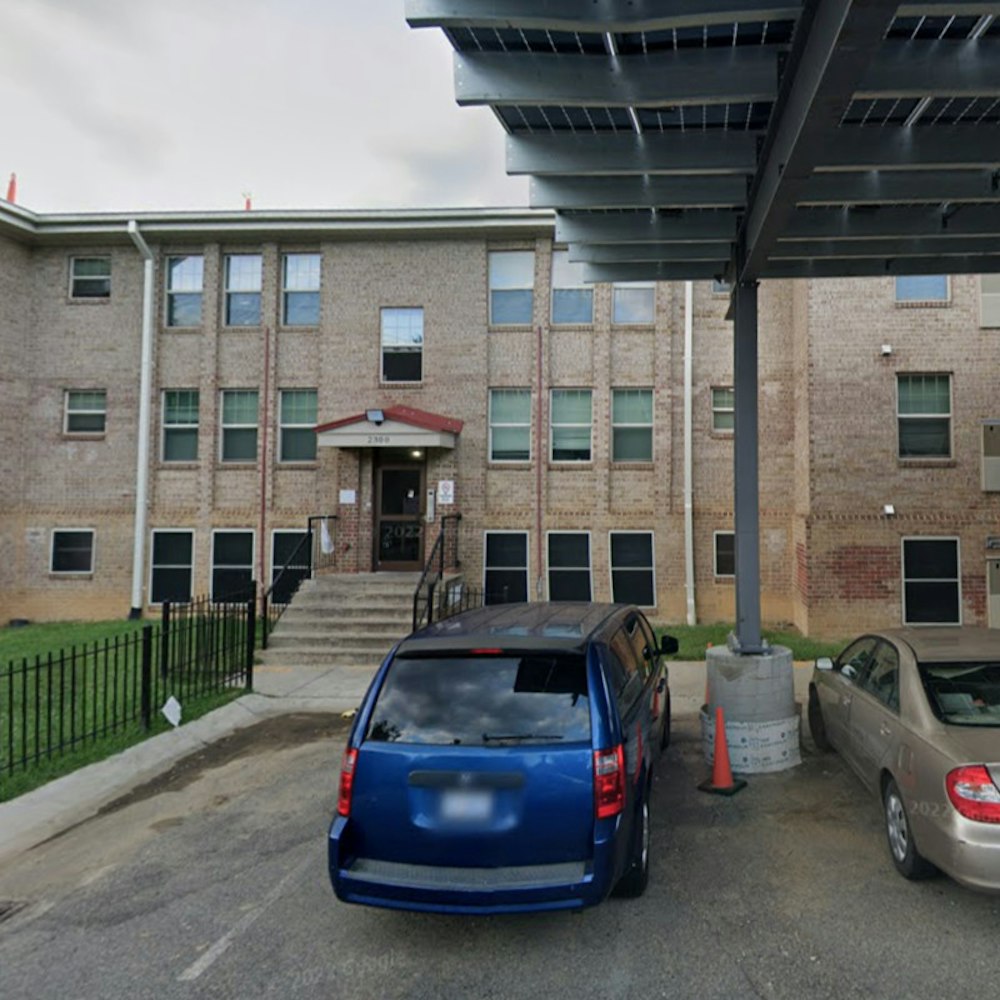
A Planning Department hearing was held on Wednesday to determine whether the 1920C co-working space at 950 Grant Ave. is in compliance with Chinatown zoning. Zoning administrator Scott Sanchez has 30 days to issue a decision, and until then, the business is continuing to operate.
The case began when the Chinatown Community Development Center (CCDC) alerted the Planning Department in late April that the second-floor space was being used for offices. Planning issued a notice of enforcement to 1920C, and CCDC held a press conference on April 30th in front of the space, with Planning Commissioner Cindy Wu as one of the speakers, to draw attention to it.
Zoning laws enacted in 1986 limit uses in the heart of Chinatown to housing, institutional (nonprofit) and small retail and professional service businesses such as gift shops, restaurants, travel agencies and the like. In previous actions, Planning found 1920C was "administrative use."
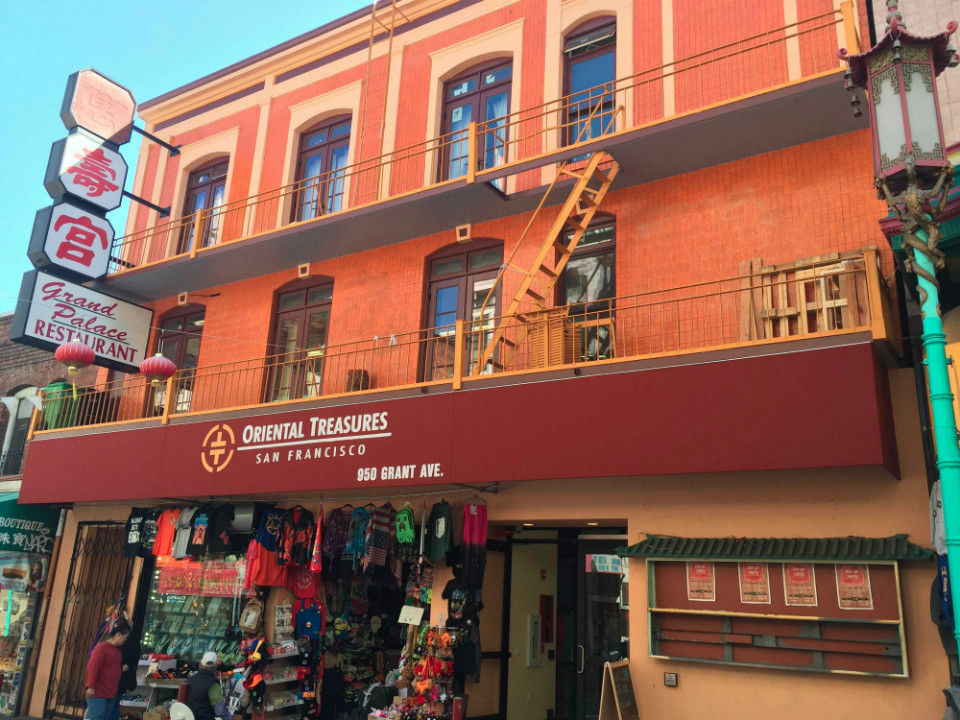
1920C is on the second floor of 905 Grant Ave. Photo: Geri Koeppel/Hoodline
1920C rents desk space hourly, daily, weekly or monthly and has a handful of regular clients, including small website and app businesses as well as nonprofits and artists who they say would otherwise not be able to afford office space. In fact, co-owner Jenny Chan also runs a nonprofit, Pacific Atrocities Education. The lease with the landlord is with that nonprofit as well as 1920C.
The company also rents to individuals, including many tourists, who come in to use the Internet for an hour or a day and to use office equipment such as printers and copiers. "We think that we still fit into the definition of professional services because we’re open to the public and offer services, and we think we’re other retail sales because we rent office equipment," said co-owner Molly Bacon. They're eager to fit into and honor the community, saying their clients have boosted business for the shops and restaurants in the area.
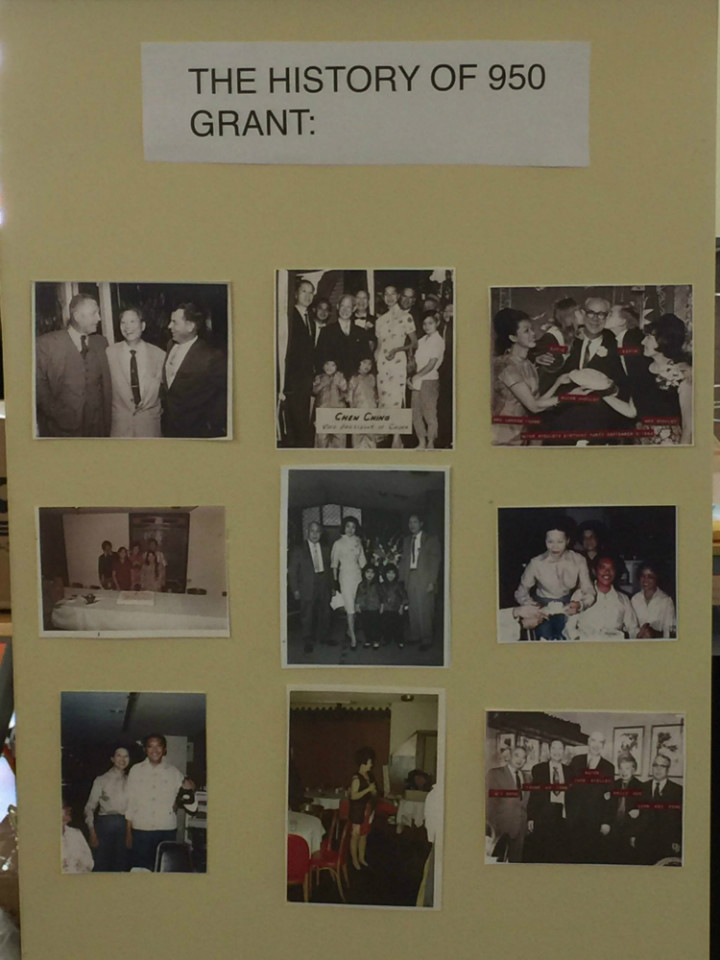
950 Grant has a rich history. Photo: Geri Koeppel/Hoodline
1920C offers free yoga classes open to the public and free rehearsal space to a group of traditional Chinese musicians. It also holds community events such as art openings and operates as a gallery space open to the public during business hours. For each work that's sold, the artist gets 50 percent, 1920C gets 30 percent and a partner nonprofit, which changes regularly, gets 20 percent.
Bacon said the co-working space subsidizes these uses of the space. "We’re women who wanted to create a collaborative community and support artists and individuals and provide an affordable space,” she said. (Bacon, of Portola, and Chan, of North Beach, own 1920C with a third owner, Paola Rossaro, also of North Beach.) Bacon said their goal from the start was to offer a "socially driven, wellness-focused" space. (Most of the so-called tech businesses that rent there are focused on things like health-related apps and yoga video streaming.)
At the hearing, dozens of people showed up—including some who held a protest in favor of the business on May 27th—and several spoke in support of allowing 1920C to remain open, citing a positive effect on the neighborhood. The owners produced more than 350 signatures of support from Chinatown residents and more than 120 from other San Francisco locals.
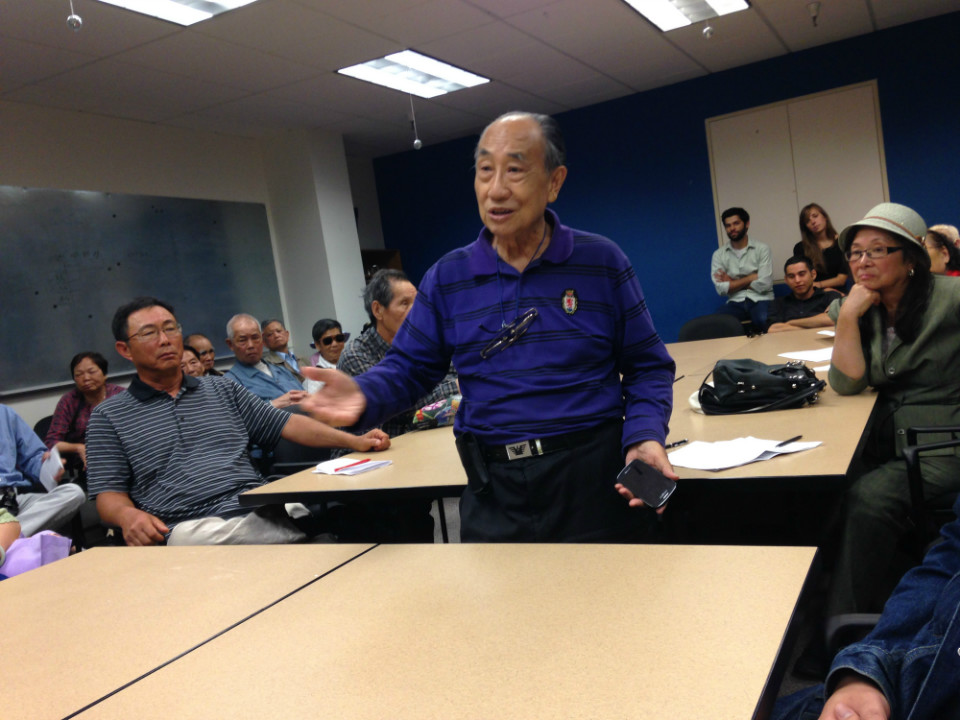
Richard Ow speaks at the zoning hearing. Photo: Melissa Huang
David Tse, who owns Duxwell Printing Co. at 37 Wentworth Place, said in the hearing and told Hoodline that he was considering closing up shop until 1920C co-owner Jenny Chan came in one day and starting bringing him more and more business. "She introduced me to her co-founders, and they have a lot of tenants, and those tenants came to my shop and gave me a lot of business, and they volunteer at their nonprofits, and those nonprofits come to me," he said. "Jenny gave me the idea of modernizing everything, so I owe a lot of things to her. She’s a visionary. I’m really motivated because she has a lot of energy."
However, as Gen Fujioka of CCDC said, the hearing is not about whether people like Chan or 1920C; it is about whether the use is permitted. "1920C has reported it has changed a number of its practices and reconfigured the use of the space. They’ve made a number of claims at the hearing, and if that’s the case, the Planning Department is going to need to make a judgment on whether or not that complies with the code." Chan and Bacon denied any changes were made to their business over time to comply with the code.
Fujioka said none of the community activities at 1920C such as free yoga or free space for musicians were in place before the notice of enforcement. "There’s no guarantee this mix of activities will continue in the long term," he said. "Most of the community-serving activities were not taking place before the notice of enforcement was issued. If there isn’t a notice of enforcement pending, will those activities still continue? Whether those activities are real or long-term are anyone’s guess.”
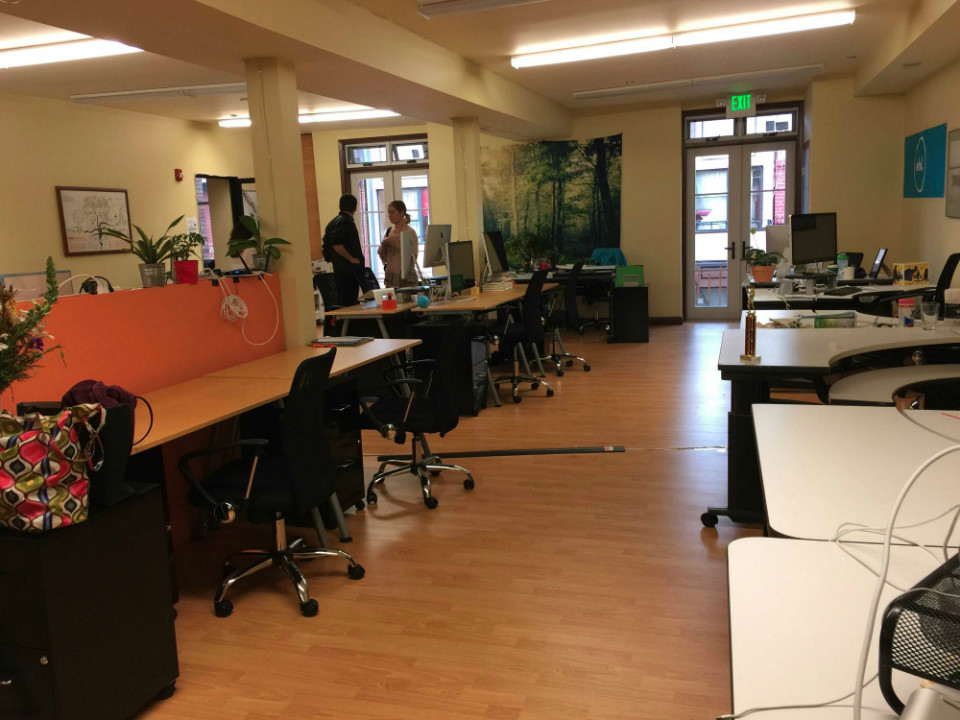
Part of the work space at 1920C. Photo: Geri Koeppel/Hoodline
Another concern for many in the Chinatown community is the "slippery slope" argument. CCDC has fought hard over time to protect Chinatown's unique character, and some worry that by allowing co-working space, it will open the door for further, more extensive office use. Reports have circulated that the former Empress of China building is being marketed for office and "tech" space.
“We have no interest in shutting down a business that is complying with the code,” Fujioka said. He said one of the messages in the zoning hearing was that the code should be changed to reflect modern uses that didn't exist when the zoning rules were created in the 1980s. However, Fujioka noted, “If you’re complying with the code, then you don’t have to change it.”
"I think there needs to be a recognition that neighborhoods—not just Chinatown but other neighborhoods in the city—are threatened with change that is destructive to the character of the neighborhoods," he said. "We need zoning protections for small businesses. We need protections against office development ... without that we would lose the character of San Francisco." He added, "People who say too casually that we should scrap the code are mischaracterizing history and misunderstanding why San Francisco is the place that we all treasure today.”


